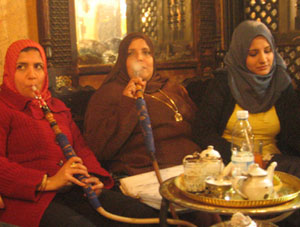 In today’s podcast we hear from people who have traveled and are sharing their interesting and diverse experiences. We listen to Michael, a French student in Germany, telling us a story of how he was welcomed in Germany.
In today’s podcast we hear from people who have traveled and are sharing their interesting and diverse experiences. We listen to Michael, a French student in Germany, telling us a story of how he was welcomed in Germany.
Then we listen to Audrey, she tells us how surprised she was after attending a German wedding and experiencing the customs and traditions of a typical German wedding. In the last part of the podcast we listen to Maris from Latvia who tells us the tale of “5 minutes”, information that every tourist should learn before traveling to Egypt. Continue reading “Absolutely Intercultural 203 +++ Traveling +++ Diversity +++ Time Management +++ Culture and Traditions +++”
Tag: egypt
absolutely intercultural 140 +++ multiculturalism +++ social media +++ The Consultants-E +++
![]() In this show we’ll be going to Ireland and asking if multi-culturalsim is dead then what should replace it? We’ll also be hearing from another Irish man, Robert O’Dowd, based in Léon, Spain about the added value of multimedia when doing online intercultural exchanges and from two of the current participants in the Podcasting course offered by The Consultants-E. I’ve been tutoring various online courses there and it has often struck me how intercultural these EFL teachers are and so this time I took the opportunity to find out more about them. For example I discovered one of the issues facing female Saudi students who want to study abroad.
In this show we’ll be going to Ireland and asking if multi-culturalsim is dead then what should replace it? We’ll also be hearing from another Irish man, Robert O’Dowd, based in Léon, Spain about the added value of multimedia when doing online intercultural exchanges and from two of the current participants in the Podcasting course offered by The Consultants-E. I’ve been tutoring various online courses there and it has often struck me how intercultural these EFL teachers are and so this time I took the opportunity to find out more about them. For example I discovered one of the issues facing female Saudi students who want to study abroad.
absolutely failed
But we’ll begin with Stephen Spillane in Ireland, a political blogger whose latest post made me want to find out more. Stephen was picking up on the backlash against multiculturalism which is spreading across Europe and made an interesting suggestion about what to replace it with. So let’s hear Stephen explain why multiculturalism has absolutely failed. Soon after I had spoken with Stephen my eye was caught by a recent report with the headline Employers looking for global awareness in young recruits, which is a kind ofpositive reply to the negative comment Stephen got to his post, and tells us that intercultural awareness is a sought after quality by employers. You can find the link to that report here.
absolutely global
In my work with The Consultants-E helping English teachers integrate technology into their everyday practice I have met (virtually of course) many interesting people. Usually the teachers fall into two categories; either they teach gloriously mixed classes in their home country or they are the ones who have moved to teach in a new culture. So in our next category, absolutely global, we are going to meet two teachers from my current podcasting class as I thought it only right for them to experience podcasting from a different perspective. First I talked with Janice Ford, an Australian based in Sydney who has taught English to students from all over the world. Janice talked to me about some of the nice moments with her international groups. I then spoke with Samah Thabet, an Egyptian woman who has been teaching in Saudi Arabia or KSA, for the last four years. I was curious about Samah’s students also. In fact my chats with Janice and Samah and others from my course were much longer so watch out for more from them in later shows. If you would like to practice your English you can try the dictation based on a short extract from this category at Listen & Write.
absolutely social
In our final category I am bringing you an extract from a free webinar offered by the Language Learning and Social Media project on the topic of social media and interculturality. Entitled Give interculturality a chance – Can social media make a difference?” I was one of the invited speakers and you can access my recorded slideshow at SlideBoom. The webinar featured Fred Dervin from Finland and Christine Develotte from France who presented some very interesting statistics about the use of social media and Liang Wang from the Open University in Milton Keynes in the UK who talked about the social media habits of Chinese students. The webinar also included a presentation by Robert O’Dowd based in Léon, Spain who talked about the multimedia exchange between his Spanish students and a group in the USA. Does multimedia help to raise intercultural awareness in an online exchange? So if Robert O’Dowd’s comments have whetted your apetite then you can find the link to the whole webinar here.
Thanks very much to everyone who took part in today’s show. We couldn’t do it without you! If you have any comments, criticisms or suggestions then please add a comment here on the blog.
Our next show will be coming to you from Dr. Laurent Borgmann in Germany on 5th August 2011
The host of this show is: Anne Fox
Editor: Markus Scherer
absolutely intercultural 129 +++ comfort zones +++ dangerous situations +++ scary moments +++ classical artist +++
 Welcome to show 129 of our Podcast “absolutely-intercultural”. Thanks you again to all of you who have helped us win in the non-profit category of the European Podcast Awards (fourth place in Germany and even number 1 in Denmark!). We really appreciate all your input and the attention our podcast has received as a result. We feel absolutely comfortable seeing that what we produce seems to have a wide audience of listeners.
Welcome to show 129 of our Podcast “absolutely-intercultural”. Thanks you again to all of you who have helped us win in the non-profit category of the European Podcast Awards (fourth place in Germany and even number 1 in Denmark!). We really appreciate all your input and the attention our podcast has received as a result. We feel absolutely comfortable seeing that what we produce seems to have a wide audience of listeners.
absolutely scared
Today we are going to talk about comfort zones and especially leaving our comfort zones. A comfort zone is the place where you feel comfortable, where everything seems to be easy and under your control. But what happens if you have to leave this comfort zone because of a change in your life or if you decide out of your own free will to leave your comfort zone? In our first category I had a meeting with people who have chosen to spend some time outside their comfort zones – by going to a foreign country: Lucy from Australia, Gintare and Vaida from Lithuania and Yasha from Turkmenistan decided to leave their comfort behind and experience something new. They left their home countries and entered a new world. I asked them which situations in their new lives were the scariest.
absolutely dangerous
If the feeling is strong, you may even feel out of place or unsafe in your new environments. This happened to Beatrice, when she went to Egypt on a holiday for the first time and all the new impressions, smells, the loudness of the street and the different behaviors of people she met, made her feel like a fish out of the water and she was even a little scared. In our second category I asked whether she could still remember leaving her comfort zone for the first time.
absolutely prepared
In our next category I will return to our round table, where the foreign students tell me how they try to introduce familiar objects from their home countries into their unfamiliar surroundings in order to be a little more comfortable even outside their comfort zones. But first I asked the participants to tell me what situations in their host country made them most uncomfortable.
absolutely comfortable
When I was putting together this podcast it seemed that nowadays it is a universal truth that we need to leave our comfort zones all the time? But can that really be right? I went out of my way to find someone who says that there are professions where everybody would want you to stay within the comfort zone. How ironic, I actually had to find an artist who would speak in favor of comfort zones so in our fourth and last category I finally spoke to Paul MacAlindin, a classical musician who is active in organizing international orchestra performances, e.g. for the National Youth Orchestra of Iraq, of which he is the Musical Director. I asked him where he leaves his comfort zones during his artistic work and also in his private life. To my surprise he explained that in classical music most stakeholders prefer not to leave their comfort zones.
Our next show will be coming to you from Anne Fox in Denmark on 05 March
Until then –
Bleiben Sie absolut interkulturell!
The host of this show is: Dr. Laurent Borgmann
Editor: Dino Nogarole
absolutely intercultural 55 +++ encouraging “benign whacky individualism” +++ European women in Arabic countries +++ Insha’Allah +++ learning Arabic +++
 absolutely individualistic:
absolutely individualistic:
We talk to Jennifer, an American professor for Eastern European Politics at a liberal arts college in Beirut, Lebanon. She tries to encourage her students to develop a more critical and individualistic attitude, which she has missed personally since she left the US. She wants her Lebanese students, but in fact students all around the world, to be at least a little bit more revolutionary, to question the status quo and to express their personality with a “benign whacky individualism”.
absolutely female:
For women travellers to some Arabic countries often the most normal things can turn into an exciting cultural adventure. Emma travelled to Syria and Jordan with her sisters and shares with us some everyday occurrences for European women travelling in some Arabic countries. We are able to relive her anxieties at the check-in at the airport when she gets separated from her sisters, her problems getting served in a restaurant and even a confrontation with some seven years old kids with machine guns, apparently serving some kind of military service.
absolutely timeless:
We learn from Maris, who went from Latvia to Egypt why time is less important in Egypt sometimes. He tells us, that every time you hear the very common expression “Insha’Allah” in an Arabic country you should try to remain as relaxed as the Arabs. This frequently-used expression means that everything will happen as and when Allah wants it to happen, and is a good explanation when a train or a bus come late and you will soon recognize, that life can be easier if you just accept this fact.
absolutely basic:
Cultural misunderstandings often arise from language barriers and a lack of cultural interests. Beatrice explains to us how you can make your journey to an Arabic country a lot more enjoyable if you learn only a few phrases of the Arabic language. You will not only open a lot of doors to the warm and friendly Arabic hosts, but you will also defuse culturally-based stress situations. Showing interest in the foreign culture will distinguish you from the ordinary tourists and people will start to invite you to their homes.
absolutely champion:
Absolutely Intercultural has been nominated for a Danish podcasting award because every other AI show is produced in Denmark. If we are to have a chance of winning then we need more nominations before we get to the voting stage! So if you like what you hear then send a mail to nominering@podcasterprisen.dk with the following details:
Name of the podcaster(s): Anne Fox
RSS feed of the podcast (if you know it): http://feeds.feedburner.com/absolutely-intercultural
URL of the podcast: http://www.absolutely-intercultural.com
Nominator’s name and email address (to take part in a prize draw of nominators)
Reason for nomination: optional but you can explain why the podcaster deserves the nomination
Deadline for this first round is May 12th. If your Danish is good you can read more at http://www.podcasterprisen.dk/
The next show will be coming to you on 2 May from Anne Fox in Denmark.
So long…stay tuned!
The host of this show is: Dr. Laurent Borgmann
Editor: Peter Kron
‘absolutely intercultural!’ – Show #2
Thanks to all of you for your numerous comments after the first show – we were overwhelmed by your response! In our second show we ask ourselves: Can intercultural awareness be taught in a classroom? Can it be taught in online courses?
We start by giving you some quotations from the 17 comments of feed-back on the first show. Fernando, a Spanish student who is doing his internship in Germany explains how surprised he was to hear Germans discuss different olive oils as if they were wines. Alexandra gives examples of how you can teach intercultural communication by facilitating intercultural experiences between participants of different countries. Ana shares her experience of an intercultural business simulation between her university and universities in Sweden and Lithuania.
And then we ask you, the listeners: Have you got any experience with intercultural classes? Perhaps even online? How can we gain intercultural awareness? In our gossip column Tommy from Denmark tells us how the Mohamed-cartoons crossed his holiday plans in Egypt and in our look at our favourite podcasts with cultural contents we hear about solar radio for coffee traders in Ruanda.
The Hosts of the show are: Anne Fox and Dr. Laurent Borgmann
Chief Editor: Karsten Kneese (the pod-Karsten)
